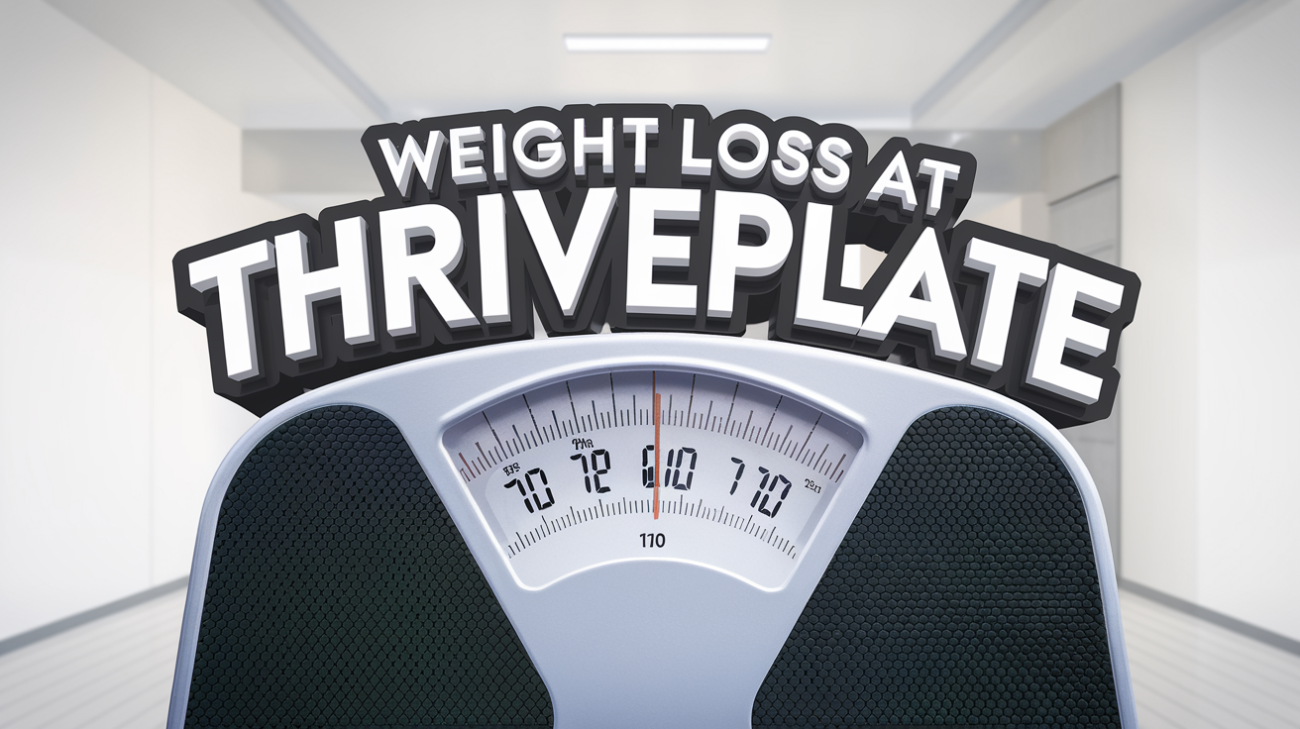
“When it comes to weight loss, many approaches work, but the key is sustainability,” says Sean Hashmi, MD, a lifestyle and obesity medicine specialist at Kaiser Permanente in Woodland Hills, California, a member of the American College of Lifestyle Medicine, and a member of Everyday Health’s Health Expert Network.
Other experts agreed.
“When I’m helping patients find a plan for weight loss, I’m not saying, Hey, let’s try this for 10 weeks and then switch,” says Fatima Cody Stanford, MD, MPH, an obesity medicine physician at Massachusetts General Hospital and an associate professor of medicine at Harvard Medical School in Boston. “We’re trying to find things someone will do consistently for the rest of their life.”
While consistency is crucial, Dr. Stanford says that doesn’t mean a person’s approach needs to be inflexible or oversimplified. According to the survey, people who lost weight tended to employ more tactics overall than people who did not lose weight. They also tended not to be too rigid or routine about diet and exercise. “I tell people the flavor can change, but the structure should be the same,” she says.
For example, Stanford says people who are incorporating exercise into their weight loss plan should feel free to switch up their workouts from time to time. The important thing is that they continue to exercise regularly. “I need variety when I’m training in order to stay motivated and excited about working out,” she says.
Likewise, dietary approaches to weight loss shouldn’t be too narrow or overly prescriptive. If your plan requires that you weigh all your food and count every calorie, Stanford says you will have a hard time sticking with it.
Finally, experts said that the tactics a person employs to lose weight shouldn’t focus solely on diet and exercise (although those are important). “We should broaden our focus to include things like stress levels, sleep quality, and mental health,” says Kayli Anderson, RDN, a nutrition expert and member of the American College of Lifestyle Medicine and Everyday Health’s Health Expert Network.
For people interested in the newest weight loss medications, our experts say they are also worth considering. While the survey found that more than half of respondents were not interested in trying these medications, those who had tried them found them to be very effective.
“It’s not just hype,” Stanford says of these drugs. “Patients on these medications tell me they don’t even have to think about eating less.”
Key Finding 2: Arm Yourself With Information
Among the people in our survey who successfully lost weight, 70 percent started their weight loss journey with “a higher level of knowledge” on how to lose weight — compared with 52 percent of those who maintained or gained weight.
Also, according to our survey, 6 in 10 people reported they knew how to lose weight. Fully 10 percent said they didn’t know where to start.
The survey also showed that having a conversation with a healthcare professional for help with weight loss may be worthwhile: Those who lost weight were more likely to have talked with a healthcare provider. Fifty-nine percent of all respondents said their doctor or other healthcare provider had talked to them about losing weight, while 53 percent of all respondents said they had not asked their doctor or provider for help with weight loss.
Even if you feel you have a good handle on the best approaches to weight loss, consulting with an expert — either a registered dietitian-nutritionist or a medical doctor who specializes in weight loss — is a good idea. “They are trained in helping people set realistic health goals,” Anderson says. “They can also educate people about nutrition and help them develop personalized plans.”
She recommends visiting the website of the American College of Lifestyle Medicine. “They represent health professionals trained in addressing prevention and treatment of disease with lifestyle,” she says. “You can search the directory on their site to find a provider to work with.”
Another reason to consult with an expert: Even evidence-backed weight loss strategies aren’t going to work for every person and every situation. “Treatment of excess weight doesn’t have a one-size-fits-all answer,” says Deepa Sannidhi, MD, an assistant clinical professor at the UC San Diego Health in California.
While the internet can provide useful (and free) weight loss information, it’s also rife with misinformation. “When you’re looking for advice online, you should always check the source,” Anderson says. Here again, she recommends seeking out recommendations from registered dietitians or weight loss physicians, or, if you don’t have access to one of these professionals, turn to credible online sources to arm yourself with information. “Eatright.org is a great dietitian-created website to learn from,” she adds.
Key Finding 3: Understand Your Motivation and the Connection Between Weight and Mental Health
Of all the hurdles that stand between a person and their weight loss goals, survey respondents were most likely to highlight stress and motivational problems.

The Compounds: Tirzepatide, Semaglutide, and Semaglutide Tablets
Managing weight and diabetes has undergone a dramatic transformation with the advent of GLP-1 receptor agonists, including tirzepatide and semaglutide. These compounds offer hope and measurable results for individuals struggling with these chronic conditions. In this blog, I’ll delve into the pros and cons of these medications, their short- and long-term effects, and how AI tools are enhancing patient outcomes. Let’s explore how these cutting-edge therapies are reshaping the landscape of health management.
Understanding the Compounds
Tirzepatide
Tirzepatide is a dual glucose-dependent insulinotropic polypeptide (GIP) and GLP-1 receptor agonist. It addresses both blood sugar levels and weight management, making it a revolutionary option for people with type 2 diabetes and obesity.
Semaglutide (Injectable and Oral Tablets)
Semaglutide, a GLP-1 receptor agonist, is available as a weekly injection and now as a daily oral tablet. It works by mimicking the hormone GLP-1 to regulate appetite and blood sugar levels effectively.
The Pros and Cons
Pros
- Effective Weight Loss: Patients report significant weight reductions with both tirzepatide and semaglutide.
- Improved Blood Sugar Control: Both medications help maintain stable glucose levels and reduce HbA1c.
- Convenient Dosage Options: Weekly injections or daily tablets provide flexibility.
- Cardiovascular Benefits: GLP-1 receptor agonists have been shown to reduce cardiovascular risks.
Cons
- Gastrointestinal Side Effects: Nausea, diarrhea, and vomiting are common, especially when starting the medication.
- High Cost: These medications can be expensive without insurance or copay assistance.
- Adherence Challenges: The injectable option may deter some patients due to needle aversion.
- Potential Long-Term Risks: While research is ongoing, concerns about pancreatitis and gallbladder issues exist.
Short-Term Side Effects
- Nausea and vomiting
- Diarrhea or constipation
- Decreased appetite
- Mild fatigue or headache
These symptoms often subside within a few weeks as the body adjusts to the medication.
Long-Term Effects
- Sustained Weight Loss: Studies indicate that patients who adhere to GLP-1 receptor agonists maintain weight loss over extended periods.
- Improved Metabolic Health: Long-term benefits include lower HbA1c levels and reduced insulin resistance.
- Potential Risks: Rare cases of thyroid tumors, gallbladder issues, and pancreatitis have been reported.
AI Tools and Calculators and Virtual Pharmacy
Technology is becoming an integral part of managing chronic conditions. Here are some AI-powered tools enhancing patient outcomes:
- Diabetes Management Apps: Platforms like MySugr and Glooko integrate with glucose monitors to provide actionable insights.
GLP-1 Diabetes Management Calculator
Dose Calculator
Glucose Reading Evaluation
Weekly Average Calculator
- Weight-Loss Calculators: Tools such as BMI trackers and calorie calculators help patients set realistic goals.
Results
BMI Results
Your BMI:
Category:
Ideal Weight: kg
Weight Loss Goals
References and Resources: Tirzepatide, Semaglutide, and Oral Semaglutide
Tirzepatide (Mounjaro™, Zepbound™)
Clinical Studies and Efficacy
- Frías JP, et al. (2021). Tirzepatide versus Semaglutide Once Weekly in Patients with Type 2 Diabetes. New England Journal of Medicine, 385(6), 503-515.
- Rosenstock J, et al. (2021). Efficacy and Safety of a Novel Dual GIP and GLP-1 Receptor Agonist Tirzepatide in Patients with Type 2 Diabetes (SURPASS-1). The Lancet, 398(10295), 143-155.
Key Findings
- Average weight loss: 15-25% of body weight
- HbA1c reduction: 1.8-2.1%
- Dual action on GIP and GLP-1 receptors
- Once-weekly injectable formulation
Injectable Semaglutide (Wegovy™, Ozempic™)
Clinical Studies and Efficacy
- Wilding JPH, et al. (2021). Once-Weekly Semaglutide in Adults with Overweight or Obesity. New England Journal of Medicine, 384(11), 989-1002.
- Davies M, et al. (2021). Semaglutide 2.4 mg Once a Week in Adults with Overweight or Obesity. The Lancet, 397(10278), 971-984.
Key Findings
- Average weight loss: 12-17% of body weight
- HbA1c reduction: 1.4-1.8%
- Selective GLP-1 receptor agonist
- Once-weekly injectable formulation
Oral Semaglutide (Rybelsus™)
Clinical Studies and Efficacy
- Rodbard HW, et al. (2019). Oral Semaglutide versus Empagliflozin in Patients with Type 2 Diabetes. The Lancet Diabetes & Endocrinology, 7(7), 515-526.
- Aroda VR, et al. (2019). PIONEER 1: Randomized Clinical Trial of Oral Semaglutide Monotherapy in Type 2 Diabetes. Diabetes Care, 42(9), 1724-1732.
Key Findings
- Average weight loss: 4-8% of body weight
- HbA1c reduction: 1.1-1.4%
- First oral GLP-1 receptor agonist
- Daily tablet formulation
Safety Considerations and Side Effects
Common Side Effects
- Gastrointestinal symptoms (nausea, vomiting, diarrhea)
- Decreased appetite
- Fatigue
- Injection site reactions (for injectable formulations)
Monitoring Requirements
- Thyroid C-cell tumors risk assessment
- Pancreatic enzyme monitoring
- Kidney function evaluation
- Diabetic retinopathy screening
Real-World Evidence and Patient Outcomes
Quality of Life Improvements
- Reduced food cravings
- Better glycemic control
- Improved cardiovascular outcomes
- Enhanced medication adherence with weekly dosing
Cost and Access Considerations
- Insurance coverage variations
- Prior authorization requirements
- Patient assistance programs
- Long-term cost-effectiveness analysis
Future Directions and Research
Ongoing Clinical Trials
- Cardiovascular outcome studies
- Combination therapy investigations
- New delivery methods
- Extended-duration formulations
Emerging Applications
- Obesity-related complications
- Non-alcoholic fatty liver disease
- Cardiovascular risk reduction
- Mental health and addiction
Note: Always verify citation information as publications and research findings may have been updated since the compilation of this reference list.
Frequently Asked Questions: Tirzepatide, Semaglutide, and Oral Semaglutide
General Questions
What are these medications used for?
These medications are primarily used for:
- Type 2 diabetes management
- Chronic weight management in eligible patients
- Cardiovascular risk reduction (in specific populations)
How do these medications work?
- Tirzepatide: Works as a dual GIP/GLP-1 receptor agonist
- Semaglutide: Acts as a GLP-1 receptor agonist
- Both help regulate blood sugar, reduce appetite, and slow gastric emptying
Medication-Specific Questions
Tirzepatide (Mounjaro™, Zepbound™)
Q: What is the typical dosing schedule? A: Once-weekly injection, starting at 2.5mg and gradually increasing to target dose (up to 15mg)
Q: How much weight loss can I expect? A: Clinical trials show 15-25% average body weight loss over 72 weeks
Q: How long does it take to see results? A: Initial results often seen within 4-8 weeks; maximum benefits typically achieved over 6-12 months
Injectable Semaglutide (Wegovy™, Ozempic™)
Q: What’s the difference between Wegovy and Ozempic? A: Same molecule (semaglutide) but different FDA approvals and dosing:
- Wegovy: Approved for chronic weight management
- Ozempic: Approved for type 2 diabetes
Q: What’s the typical dosing schedule? A: Once-weekly injection, starting at 0.25mg and gradually increasing to target dose (up to 2.4mg for Wegovy)
Oral Semaglutide (Rybelsus™)
Q: How should I take the oral tablet? A: Take on an empty stomach upon waking with no more than 4 oz of plain water. Wait 30 minutes before eating, drinking, or taking other oral medications
Q: Why can’t I take it with food? A: Food interferes with absorption of the medication, reducing its effectiveness
Safety and Side Effects
Q: What are the most common side effects? A: Common side effects include:
- Nausea
- Diarrhea
- Vomiting
- Constipation
- Abdominal pain
- Decreased appetite
Q: How can I manage side effects? A: Management strategies include:
- Following the prescribed dose escalation schedule
- Eating smaller meals
- Avoiding high-fat foods
- Staying hydrated
- Communicating with healthcare provider about severe symptoms
Practical Considerations
Q: Do I need to refrigerate these medications? A:
- Unused pens should be refrigerated
- After first use, injectable pens can be stored at room temperature for up to 28 days
- Oral tablets don’t require refrigeration
Q: Can I take these medications if I’m pregnant or planning pregnancy? A: Not recommended during pregnancy or for women planning pregnancy. Discuss family planning with your healthcare provider
Q: Will insurance cover these medications? A: Coverage varies by:
- Insurance provider
- Specific plan
- Medical necessity
- Prior authorization requirements
Treatment Expectations
Q: How long will I need to take the medication? A: These are typically long-term medications. Discontinuation may result in weight regain or loss of glycemic control
Q: What happens if I miss a dose? For injectable medications:
- If within 72 hours: Take as soon as possible
- If more than 72 hours: Skip and resume next scheduled dose
For oral semaglutide:
- Skip missed dose and resume next day
Monitoring and Follow-up
Q: What monitoring is required? Regular monitoring includes:
- Blood sugar levels (for diabetes patients)
- Weight
- Kidney function
- Pancreatic enzymes
- Thyroid function (in some cases)
Q: How often should I see my healthcare provider? A: Typically:
- Monthly during dose escalation
- Every 3-6 months once stable on maintenance dose
- More frequently if complications arise
Lifestyle Considerations
Q: Do I still need to diet and exercise? A: Yes. These medications work best when combined with:
- Healthy eating habits
- Regular physical activity
- Behavioral modifications
- Adequate sleep
- Stress management
Q: Can I drink alcohol while taking these medications? A: Moderate alcohol consumption is generally acceptable, but:
- May increase risk of low blood sugar
- Can worsen gastrointestinal side effects
- Should be discussed with healthcare provider
Remember: This FAQ is for general information purposes. Always consult your healthcare provider for personalized medical advice.
Check for Eligibility for Compounded GPL-1s at Orderlymeds.com
This page contains affiliate links. We may receive a commission for purchases made through these links at no additional cost to you. These commissions help support our free calculator tools. See our full disclosure for details.
Your Results
BMI:
Category:
Medical & Legal Disclaimers:
- Results are estimates and may vary
- Not a substitute for professional medical advice
- Consult healthcare providers before starting any weight loss program
- Weight loss results not guaranteed
- Medication eligibility subject to provider approval
About Our Affiliate Partners:
We partner with trusted healthcare providers and pharmacies. While we may receive compensation for referrals, our recommendations are based on medical criteria and professional judgment. Your medical information is protected under HIPAA guidelines.



